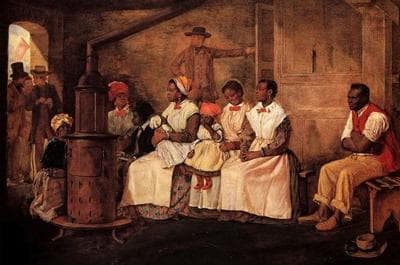Advertisement
'Ecstatic Nation'
Resume"Ecstatic Nation." A new book looks at the passions and polarization that drove America to civil war.

The lazy days of August have calmed the din just a bit. But we know we’ve been living in a time of extraordinary political passions and polarization.
In a brilliant new book called “Ecstatic Nation,” historian Brenda Wineapple takes us back in a new way to the years around America’s ultimate meltdown in passion – the years around the Civil War.
Not just the bills and moves and maneuvers that left the nation at war with itself. But the people – from P.T. Barnum to Walt Whitman to Red Cloud to Jefferson Davis.
This hour, On Point: “Ecstatic Nation,” and American polarization, then and now.
- Tom Ashbrook
Guest
Brenda Wineapple, author of "Ecstatic Nation: Confidence, Crisis, and Compromise, 1848-1877." She teaches in the MFA programs at the New School University and Columbia University, and is a professor of modern literary and historical studies at Union College.
From Tom's Reading List
The New York Times: Patriotic Roar — "Wineapple gives us history as it feels in real time: full of plans that backfire, schemes foiled by chance, outliers who suddenly change everything and happy endings that turn out to be not too happy after all. And, somehow, the whole untidy situation pushes us toward social progress. 'Ecstatic Nation' is not a book with an overt agenda. Its message is delivered through its vivid portrayal of the human side of an era, following the roiling tides of emotions — erratic, shifting and ultimately overpowering."
Salon: 'It is the nation's time': How women won the vote -- "Elizabeth Cady Stanton continued to lecture, but mainly she wrote; she composed a history of the entire suffrage movement and a monumental two-volume Women’s Bible. Susan B. Anthony kept traveling across America as a suffrage speaker. In Rochester, in the fall of 1872, she tried to cast her ballot in the presidential election. Arrested, convicted, and fined, she never served a day in jail and never paid the fine; rather, she trooped on, becoming the mother of us all."
Excerpt: 'Ecstatic Nation'
This program aired on August 26, 2013.